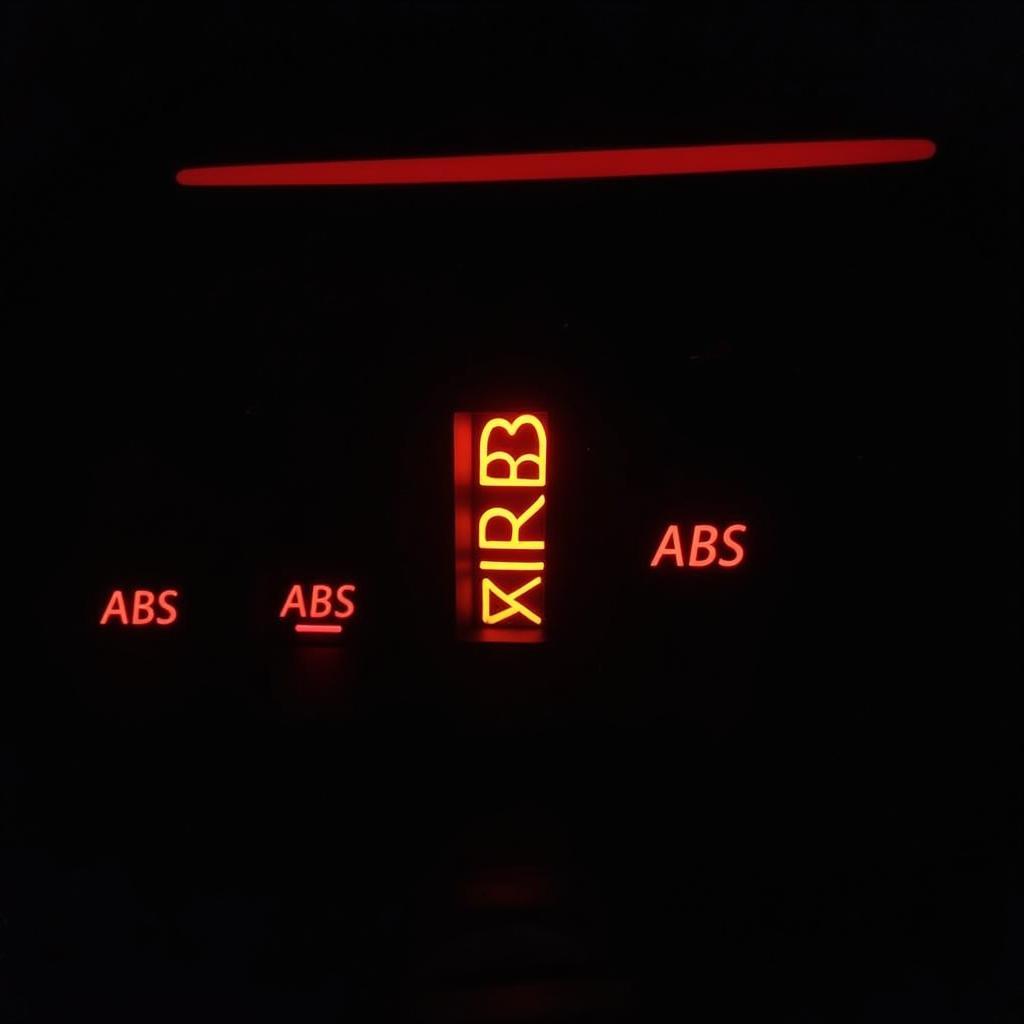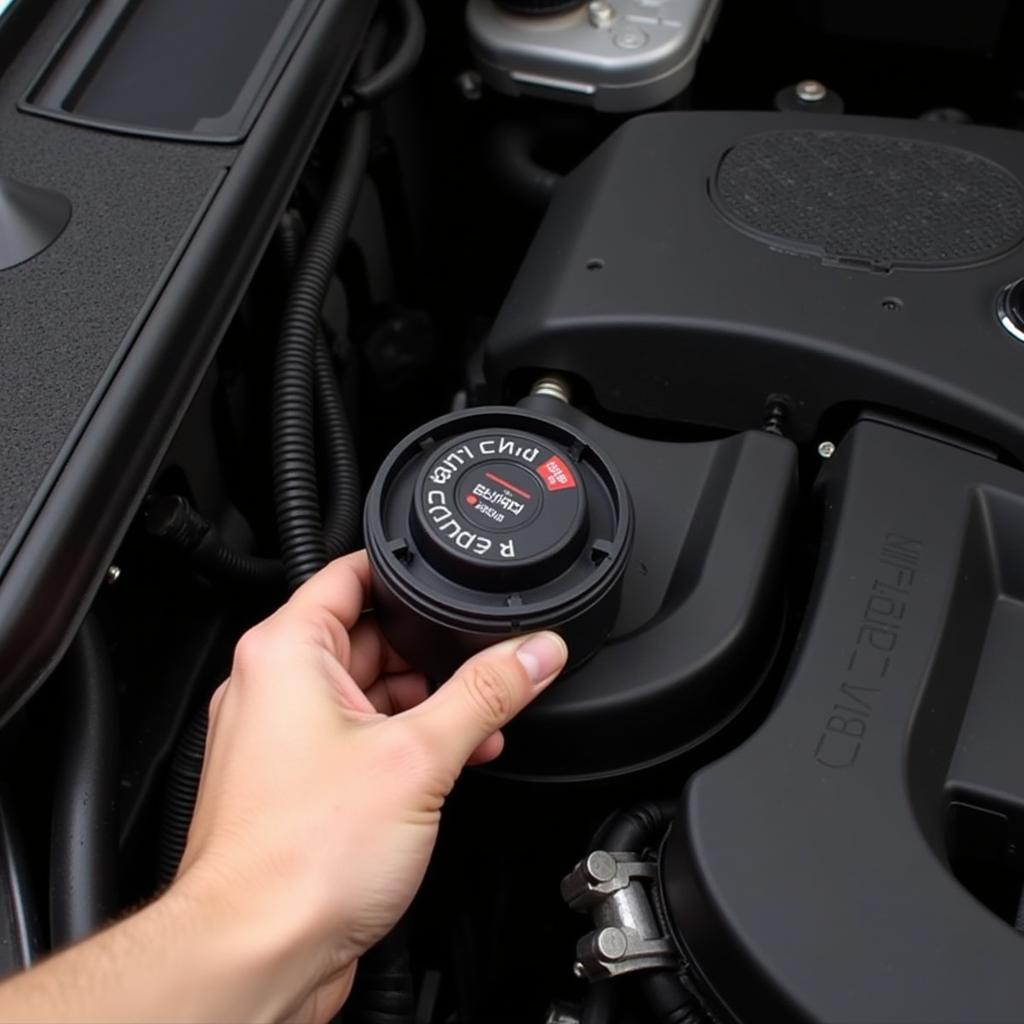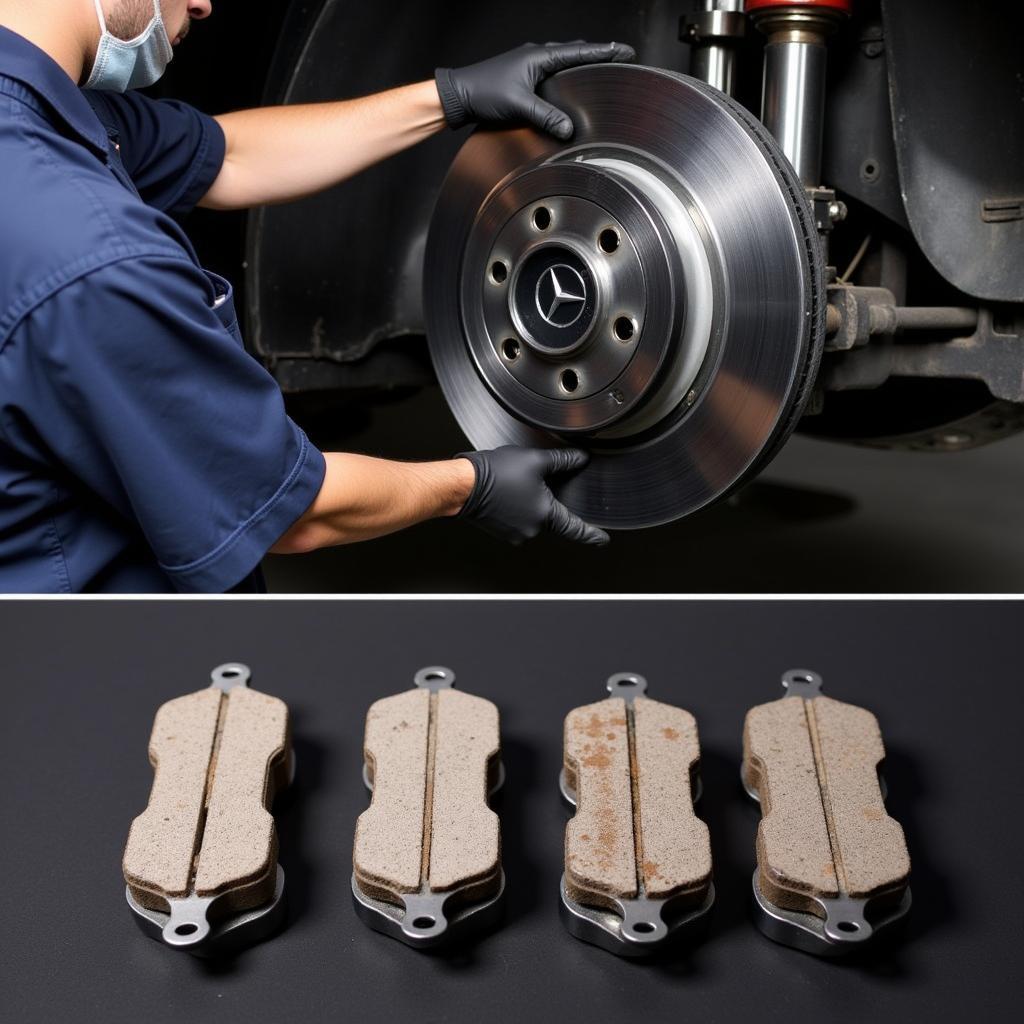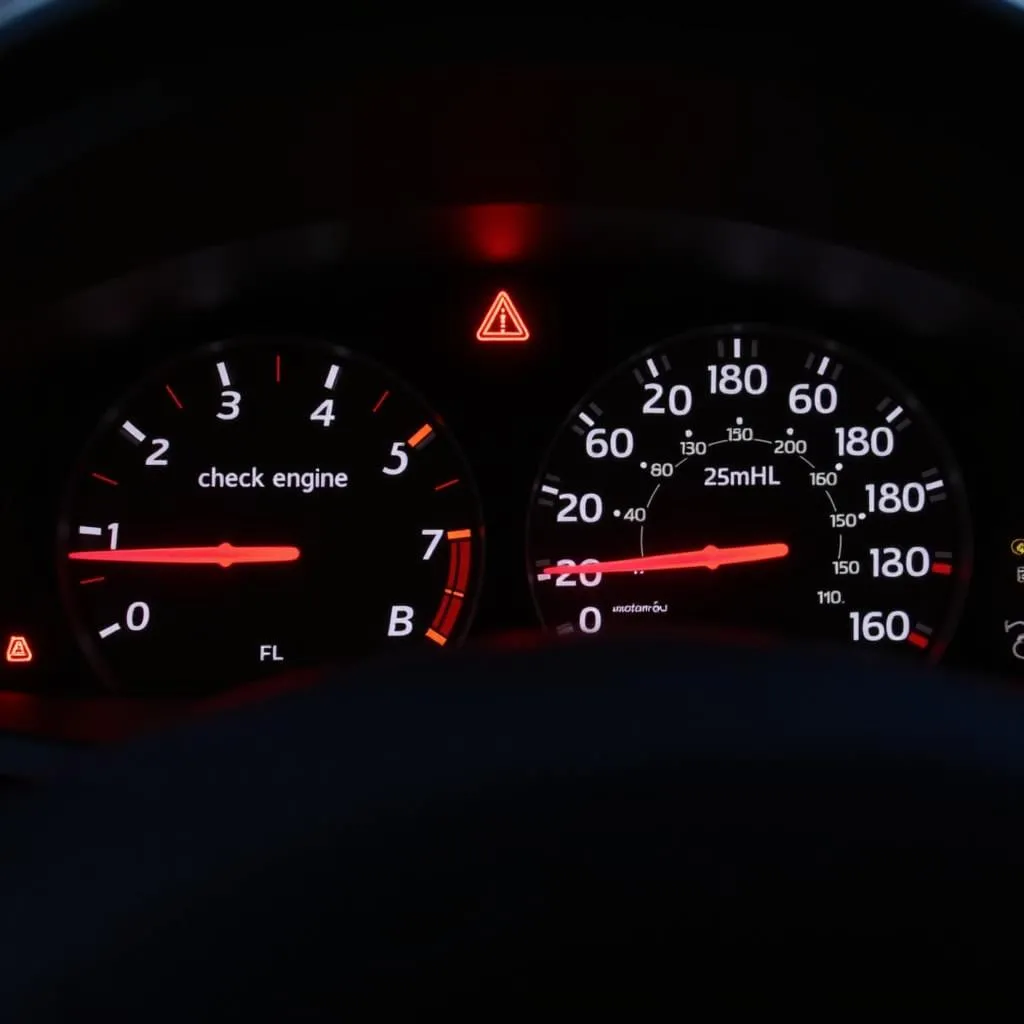A Mercedes brake warning light appearing on your dashboard can be a worrying sight. Is it a minor issue or a sign of a serious problem? This comprehensive guide will help you understand the different types of Mercedes brake warnings, their common causes, and the steps you can take to address them, potentially saving yourself time and money on unnecessary repairs.
Understanding Your Mercedes Brake Warning System
Mercedes vehicles are equipped with a sophisticated electronic braking system designed to ensure optimal stopping power and safety. When the system detects a potential issue, it triggers a warning light on your dashboard to alert you.
There are several types of brake warning lights you might encounter:
-
Red Brake Warning Light: This light typically illuminates as “BRAKE” or displays a circle with an exclamation mark (!). It often signals a critical issue with your braking system, such as low brake fluid, a malfunctioning ABS system, or a problem with the electronic parking brake.
-
Yellow ABS Warning Light: This light, indicating “ABS,” warns of a problem with your Anti-lock Braking System. While your regular brakes may still function, you might experience wheel locking during hard braking situations.
-
Parking Brake Warning Light: Usually appearing as a “P” within a circle, this light serves as a reminder that your parking brake is engaged. If it remains illuminated after disengaging the parking brake, it could indicate a malfunction.
 Mercedes Brake Warning Lights
Mercedes Brake Warning Lights
Common Causes of a Mercedes Brake Warning Light
1. Worn Brake Pads:
One of the most common reasons for a Mercedes brake warning light is worn brake pads. Mercedes vehicles feature brake pad wear sensors that trigger the warning light when the pads reach a certain level of wear, indicating it’s time for a replacement.
2. Low Brake Fluid:
Brake fluid is crucial for transmitting force from the brake pedal to the wheels. If the brake fluid level is low, it could indicate a leak in the system, which needs immediate attention.
3. Faulty Brake Sensors:
Like any other sensor, brake sensors can malfunction or wear out over time. A faulty sensor may send inaccurate readings to the car’s computer, triggering a false warning light.
4. ABS Issues:
Problems with the ABS system, such as a faulty wheel speed sensor or a malfunctioning ABS module, can trigger the ABS warning light.
5. Electrical Issues:
Electrical issues, like a blown fuse or a wiring problem, can also disrupt the brake warning system.
 Checking Brake Fluid Level in a Mercedes
Checking Brake Fluid Level in a Mercedes
What to Do When Your Mercedes Brake Warning Light Comes On
1. Don’t Panic:
While a brake warning light is a serious matter, it’s essential to remain calm.
2. Safely Pull Over:
As soon as it’s safe, pull over to the side of the road and come to a complete stop.
3. Check Your Parking Brake:
Ensure your parking brake is fully disengaged. If the light remains on, it could indicate a different issue.
4. Inspect Your Brake Fluid:
If possible, carefully check the brake fluid level in the reservoir. If it’s low, do not drive the car.
5. Contact a Qualified Mechanic:
Whether you suspect low brake fluid, worn brake pads, or a more complex issue, it’s crucial to have your Mercedes inspected by a qualified mechanic specializing in Mercedes vehicles.
Remote Diagnostics and Software Solutions for Mercedes Brake Issues
In today’s digital age, remote diagnostics and software solutions are playing an increasingly vital role in automotive repair. For certain Mercedes brake issues, remote diagnostics can be used to:
- Read and analyze fault codes: Providing valuable insights into the root cause of the brake warning.
- Perform software updates: Addressing software-related glitches that may be affecting the braking system.
- Validate sensor readings: Confirming if a sensor is malfunctioning or providing inaccurate data.
why is my mercedes brake warning alwys on
Example:
“I’ve had instances where a client’s Mercedes displayed a brake warning light. Using remote diagnostics, I was able to pinpoint a faulty wheel speed sensor as the culprit. This saved the client a trip to the workshop and unnecessary replacement of other brake components.” – John Smith, Lead Mercedes Technician at XYZ Auto
Preventive Measures for a Healthy Mercedes Braking System
Prevention is always better than cure. Here are some proactive steps you can take to maintain your Mercedes braking system:
- Regular Brake Inspections: Have your brakes inspected by a qualified mechanic at least once a year or as recommended in your Mercedes owner’s manual.
- Timely Brake Pad Replacement: Don’t ignore the brake pad wear indicator. Replace your brake pads as soon as you see the warning light.
- Brake Fluid Flush: Have your brake fluid flushed and replaced every 2 years or as recommended by Mercedes.
- Avoid Riding the Brakes: Continuously riding your brakes can lead to excessive wear and tear.
 Mercedes Brake Pad Replacement
Mercedes Brake Pad Replacement
Conclusion
A Mercedes brake warning light is a serious signal that should never be ignored. Understanding the different types of warnings, potential causes, and appropriate actions can help you address the issue promptly and ensure your safety on the road. While remote diagnostics and software solutions are emerging as valuable tools, seeking timely professional assistance from a qualified Mercedes mechanic remains crucial for accurate diagnosis, repair, and peace of mind.
FAQs
1. Can I drive my Mercedes with the brake warning light on?
It is strongly advised not to drive your Mercedes with the brake warning light illuminated. It indicates a potential problem with your braking system, which could compromise your safety.
2. How much does it cost to fix a Mercedes brake warning light?
The cost of repair depends on the underlying cause. A simple brake pad replacement might be relatively inexpensive, while a more complex issue like an ABS module replacement could be significantly more expensive.
3. How often should I replace my Mercedes brake pads?
The lifespan of brake pads varies depending on driving style and conditions. As a general rule, it’s a good idea to have them checked at least once a year and replaced when the wear indicator activates.
4. Can I check my Mercedes brake fluid myself?
Yes, you can visually check the brake fluid level in the reservoir. However, if you notice a low fluid level, it’s best to have a qualified mechanic inspect the system for leaks.
5. What is involved in a Mercedes brake fluid flush?
A brake fluid flush involves draining the old fluid from the system and replacing it with fresh fluid. This helps maintain the performance and longevity of the braking system.



